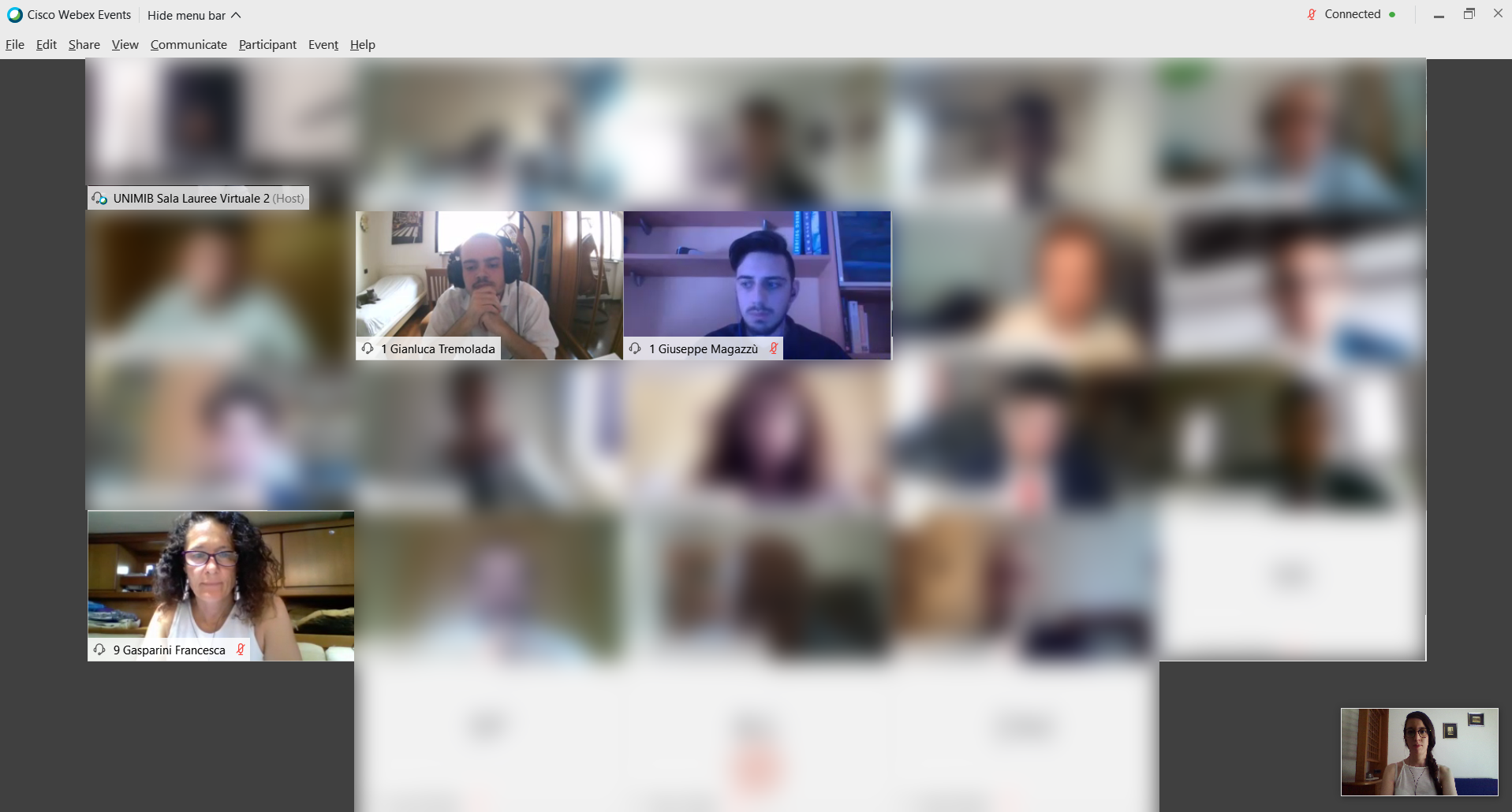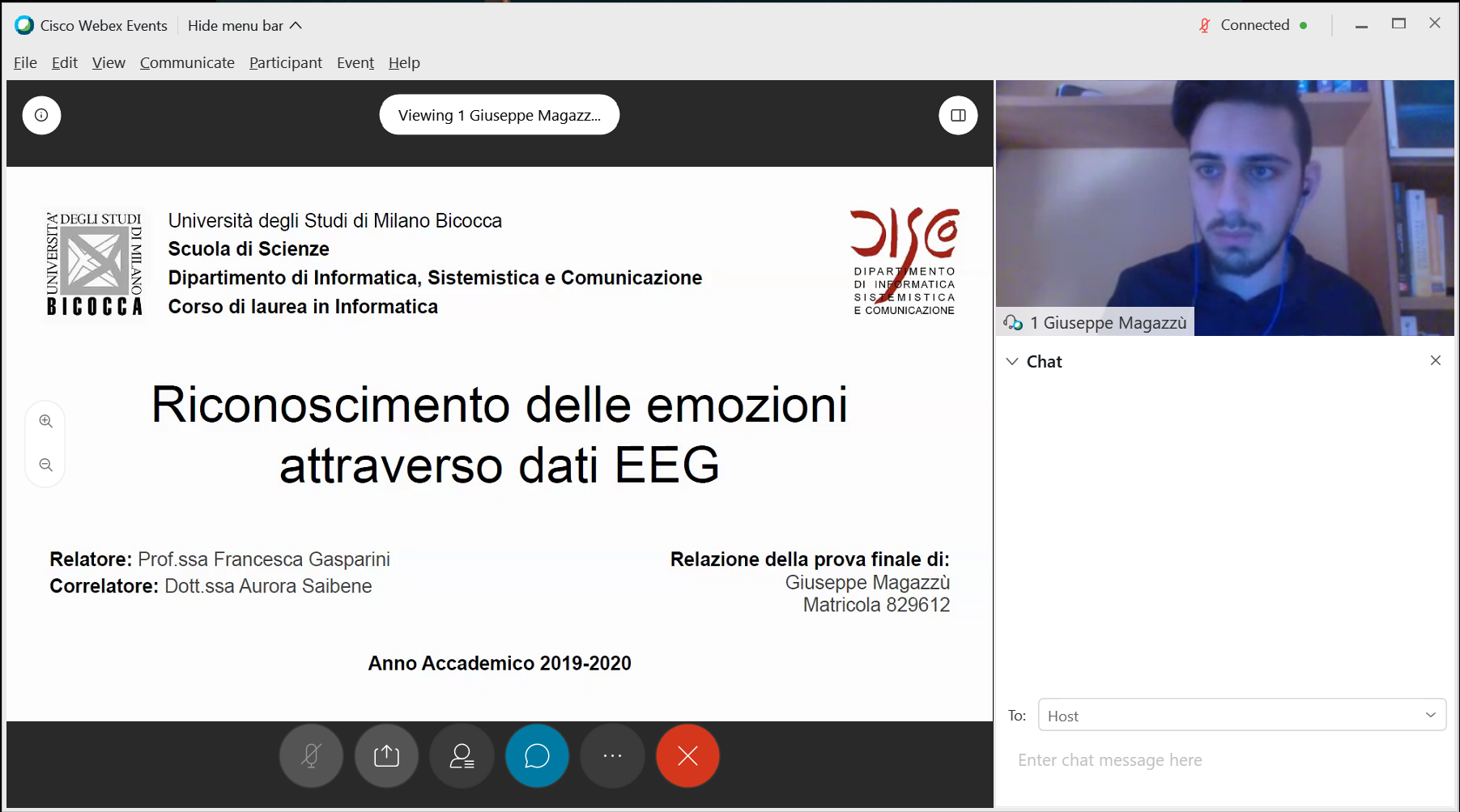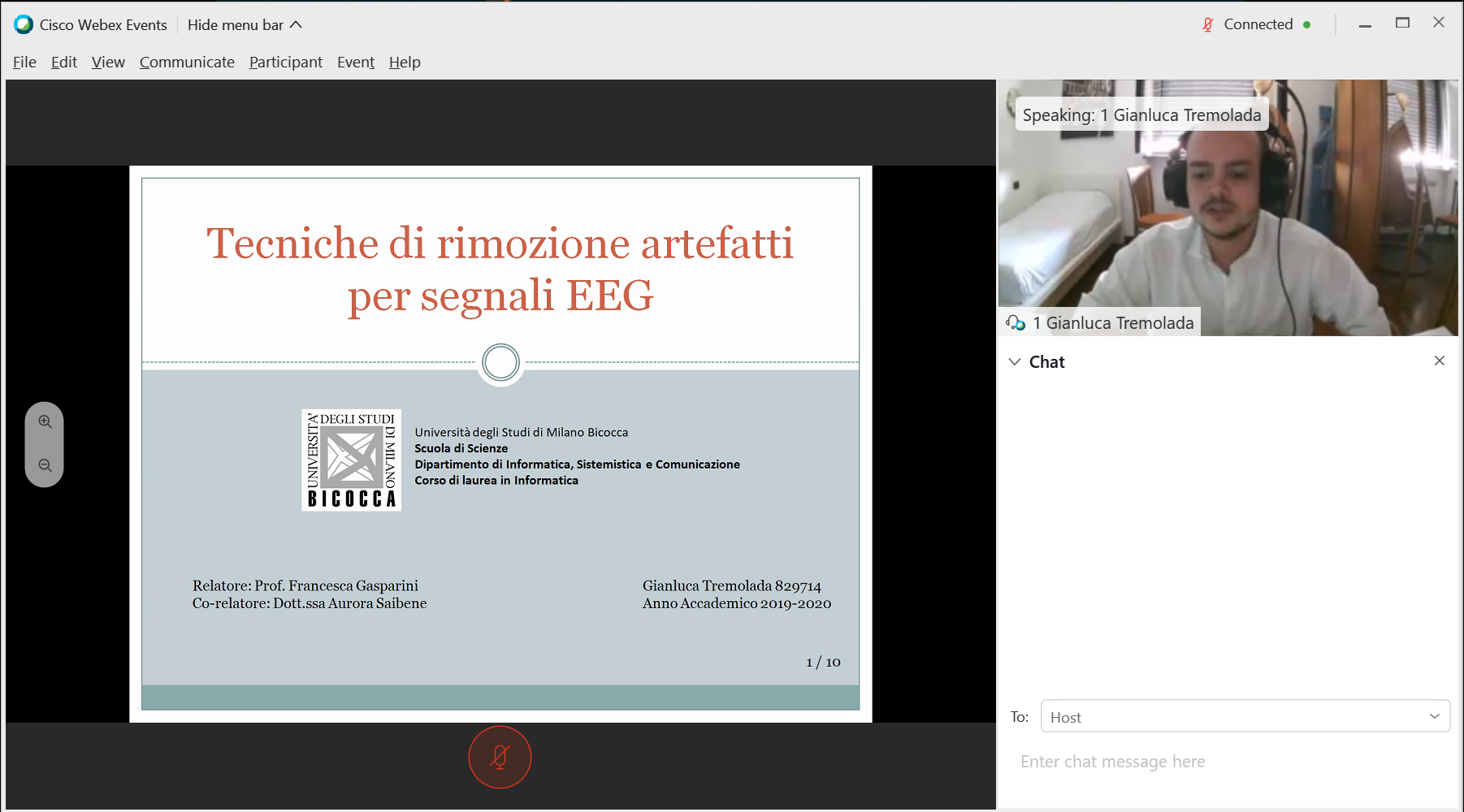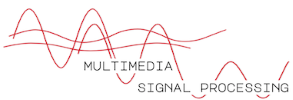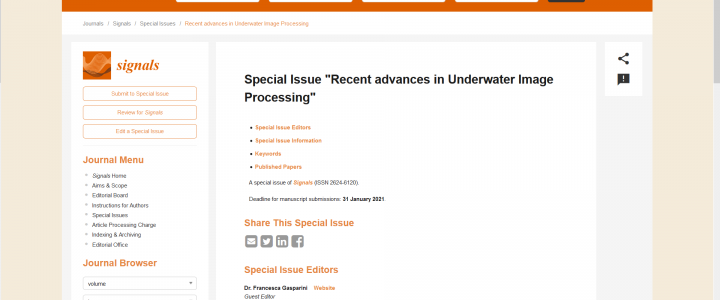The MMSP group has launched a Special Issue on “Recent advances in Underwater Image Processing“ wanting to exploit and highlight the great interest on this topic lasting from several decades.
On underwater image processing, Silvia Corchs‘s publication “Underwater image processing: state of the art of restoration and image enhancement methods” achieved a great success.
For more details on the Special Issue, please refer to the MDPI dedicated webpage.
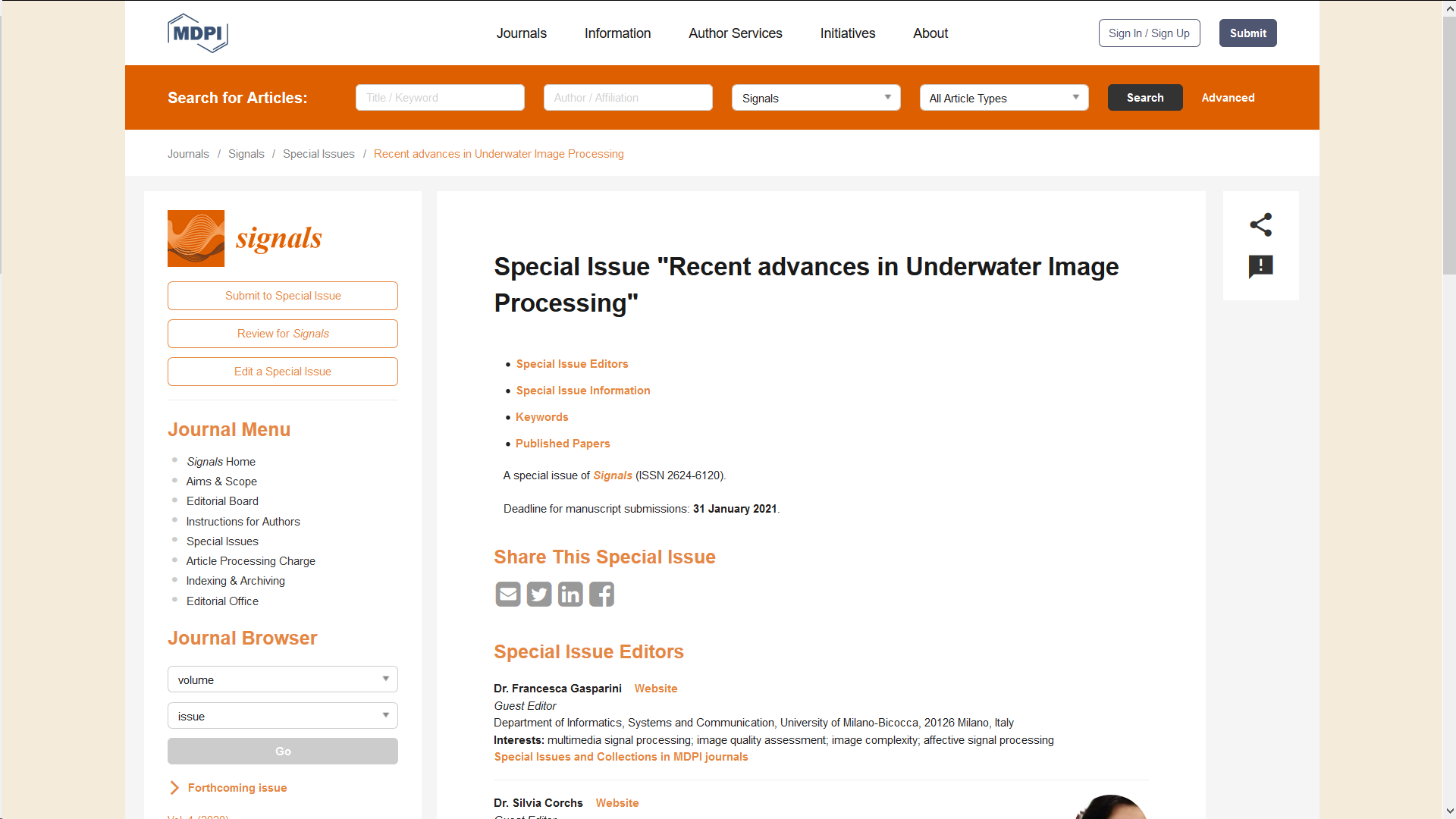
A special issue of Signals (ISSN 2624-6120)
In the last several decades, there has been great interest in underwater images. This could be related not only to the wide diffusion of low-cost waterproof digital cameras that have enriched personal photo galleries, but also to the analysis and monitoring of sea environments through remotely operated and autonomous underwater vehicles. These two different target images (personal and monitoring images) are affected by several distortions typical of underwater environments (color casting, blur, poor contrast and visibility, noise). While many different correction methods exist in the literature, underwater image enhancement and restoration is still an open issue. In the last several years, machine and deep learning methods have been applied to this particular set of images. However, the cardinality of the training data and the availability of ground truth databases pose the major challenges. Finally, to quantify the performance of the image processing methods, underwater image quality assessment is of great importance. One crucial point is how to assess image quality in the case of underwater images. Many different databases exist in the literature, but few of them have been explicitly built to assess the quality of underwater images. In general, this is mainly done manually (by visual inspection), and a proper database is still lacking. In this Special Issue we focus on the recent advancements achieved to improve both kinds of images (personal and monitoring). In particular, we aim to address how these methods can benefit from machine and deep learning algorithms.
Dr. Francesca Gasparini
Dr. Silvia Corchs
Dr. Aurora Saibene
Guest Editors
Deadline for manuscript submissions: 31 January 2021.
